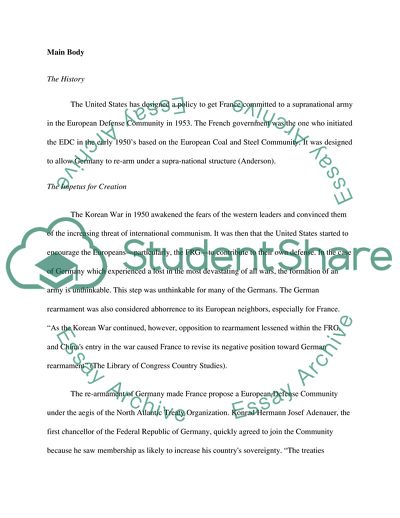Cite this document
(The European Defense Community Case Study Example | Topics and Well Written Essays - 2000 words, n.d.)
The European Defense Community Case Study Example | Topics and Well Written Essays - 2000 words. Retrieved from https://studentshare.org/history/1728116-european-integration-from-conflict-to-co-operation
The European Defense Community Case Study Example | Topics and Well Written Essays - 2000 words. Retrieved from https://studentshare.org/history/1728116-european-integration-from-conflict-to-co-operation
(The European Defense Community Case Study Example | Topics and Well Written Essays - 2000 Words)
The European Defense Community Case Study Example | Topics and Well Written Essays - 2000 Words. https://studentshare.org/history/1728116-european-integration-from-conflict-to-co-operation.
The European Defense Community Case Study Example | Topics and Well Written Essays - 2000 Words. https://studentshare.org/history/1728116-european-integration-from-conflict-to-co-operation.
“The European Defense Community Case Study Example | Topics and Well Written Essays - 2000 Words”. https://studentshare.org/history/1728116-european-integration-from-conflict-to-co-operation.


